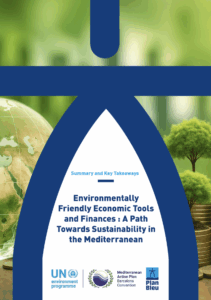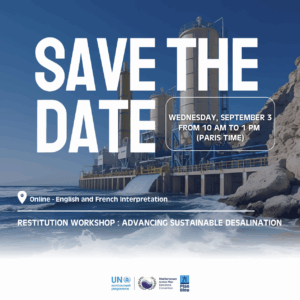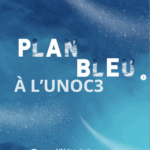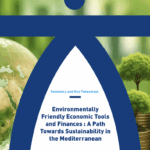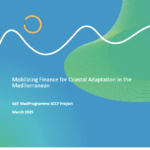Marine and coastal areas of the Mediterranean are home to some of the most vulnerable ecosystems to the effects of climate change and human activities such as unsustainable tourism, fishing and pollution.
About one third of the Mediterranean population is concentrated along its coastal regions, resulting in more than 250 million people being particularly exposed to the effects of climate change that include sea level and temperature rise, sea acidification and increased frequency of extreme weather events. Nature-based Solutions (NbS) can combine climate change mitigation and adaptation, biodiversity conservation and sustainable resource management, for the benefit of coastal communities and can be applied at a landscape or seascape level, and can be implemented alone or in an integrated manner with other solutions.
This factsheet has been produced by the MBPC project with the support of the partners of the Interreg MED MBPC modular projects and provides a description of the NbS type focus type and definition as an introduction. Moreover, four category of actions are described which are:
- actions to protect/restore “blue carbon” sinks;
- actions to strengthen ecosystem resilience;
- actions to implement and/or foster sustainable fishing practices;
- actions to establish and/or conserve coastal zone setbacks.
Assessing NbS environmental, economic and social benefits effectiveness is critical to ensure the development of such actions. This factsheet provides a review of frameworks such asMapping and Assessment of Ecosystems and their Services (MAES)” framework developed by the European Commission (2013), mainly focusing on the linkages between stocks and flows of ecosystem services and their benefit to humans. The NbS impact assessment framework developed by the EKLIPSE Expert Working Group on Nature‐based Solutions to Promote Climate Resilience in Urban Areas (EWG) however, recognises the potential for a range of other social, economic and environmental impacts – also known as “co-benefits”
Finally, for each of the above-mentioned categories of actions, the factsheet provides examples from Modular Projects funded by the Interreg Med Programme and a detailed list of NbS projects implemented in Mediterranean coastal zones.
Access the full document here. here. For more information about the MBPC project, please get in touch with Gloria Lazaro, Programme Officer[email protected]).






